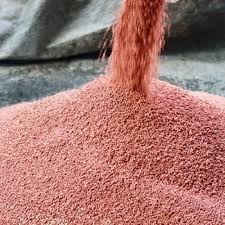
Oct . 18, 2024 05:55 Back to list
Organic Nitrogen Fertilizers to Enhance Corn Growth and Yield Potential
Organic Nitrogen Fertilizer for Corn Enhancing Growth and Sustainability
The cultivation of corn (Zea mays) is a cornerstone of global agriculture, providing food, livestock feed, and biofuel. As the demand for corn continues to rise, farmers face the challenge of improving yields while minimizing the environmental impact of their farming practices. One effective strategy for achieving these goals is the use of organic nitrogen fertilizers. Unlike synthetic fertilizers, organic options contribute to soil health, promote biodiversity, and reduce chemical runoff, making them an appealing choice for sustainable corn production.
What is Organic Nitrogen Fertilizer?
Organic nitrogen fertilizers are derived from natural sources such as plant and animal materials. Common examples include compost, manure, fish emulsion, blood meal, and leguminous cover crops. These organic fertilizers provide a slow-release source of nitrogen, which is essential for plant growth, particularly in the establishment phase. Nitrogen plays a critical role in chlorophyll production, amino acid synthesis, and overall plant metabolism, making it vital for the healthy growth of corn.
Benefits of Organic Nitrogen Fertilizer in Corn Cultivation
1. Soil Health Improvement One of the most significant advantages of using organic nitrogen fertilizers is their ability to enhance soil health. Organic materials improve soil structure, increase microbial activity, and boost the soil’s organic matter content. Healthy soil supports robust root systems and improves water retention, which is particularly crucial during dry spells.
2. Sustainable Nutrient Management Organic nitrogen fertilizers work by releasing nutrients slowly over time, which aligns more closely with plant needs. This slow-release mechanism reduces the risk of nitrogen leaching into waterways, a common problem associated with synthetic fertilizers. Consequently, using organic options promotes a more sustainable approach to nutrient management, safeguarding the environment while supporting crop productivity.
organic nitrogen fertilizer for corn

3. Enhanced Biodiversity The application of organic fertilizers encourages a diverse ecosystem within the soil. Beneficial organisms, such as earthworms and mycorrhizal fungi, thrive in healthier soils rich in organic matter. This biodiversity is critical for nutrient cycling and disease suppression, ultimately contributing to more resilient corn crops.
4. Reduced Chemical Dependency The use of organic fertilizers helps reduce farmers' reliance on chemical inputs, which can be expensive and harmful to the environment. As awareness of sustainable farming practices grows, more farmers are shifting towards organic fertilizers to meet the needs of both their crops and the ecosystem.
Challenges in Utilizing Organic Nitrogen Fertilizers
While organic nitrogen fertilizers offer numerous benefits, they also come with challenges. One significant drawback is the variability in nutrient content. Unlike synthetic fertilizers, which provide a precise nutrient profile, organic fertilizers can differ based on the source and application method. Farmers need to be knowledgeable about soil testing and adjustment of fertilizer application rates to ensure they meet their crops' nitrogen requirements adequately.
Additionally, the labor-intensive nature of sourcing and applying organic fertilizers can be a barrier for some producers. However, with proper planning and management, these challenges can be mitigated, allowing for successful implementation of organic practices.
Conclusion
The use of organic nitrogen fertilizers in corn production presents a promising solution to the dual challenge of increasing yields while maintaining environmental integrity. By enhancing soil health, promoting biodiversity, and fostering sustainable practices, organic fertilizers help ensure that corn production can meet the demands of a growing global population. As technology and practices continue to evolve, farmers who embrace organic nitrogen sources will likely find themselves at the forefront of sustainable agriculture, contributing to a healthier planet and a more resilient food system.
-
10 10 10 Fertilizer Organic—Balanced NPK for All Plants
NewsJul.30,2025
-
Premium 10 10 10 Fertilizer Organic for Balanced Plant Growth
NewsJul.29,2025
-
Premium 10 10 10 Fertilizer Organic for Balanced Plant Growth
NewsJul.29,2025
-
Premium 10 10 10 Fertilizer Organic for Balanced Plant Growth
NewsJul.29,2025
-
50 Pound Bags of 13-13-13 Fertilizer for All Plants – Bulk & Organic Options
NewsJul.28,2025
-
High-Efficiency 15-30-15 Granular Fertilizer for Healthy Crops
NewsJul.28,2025
